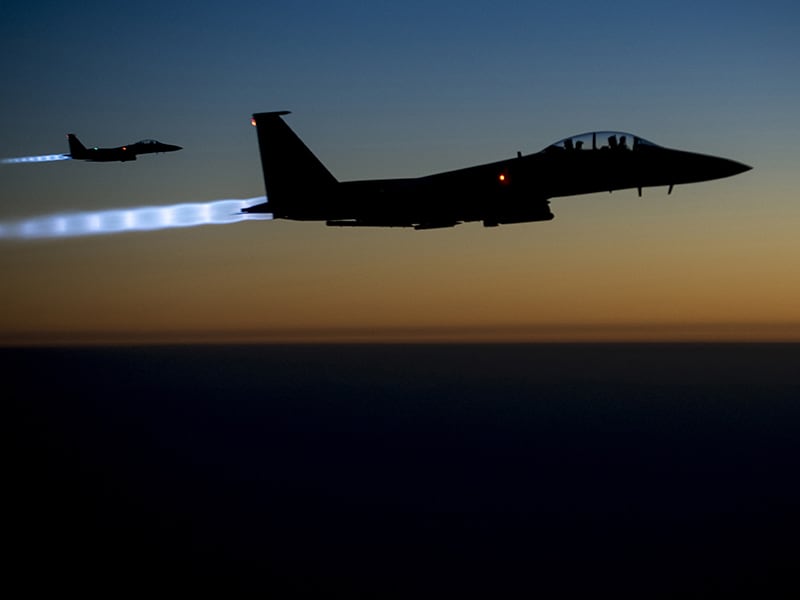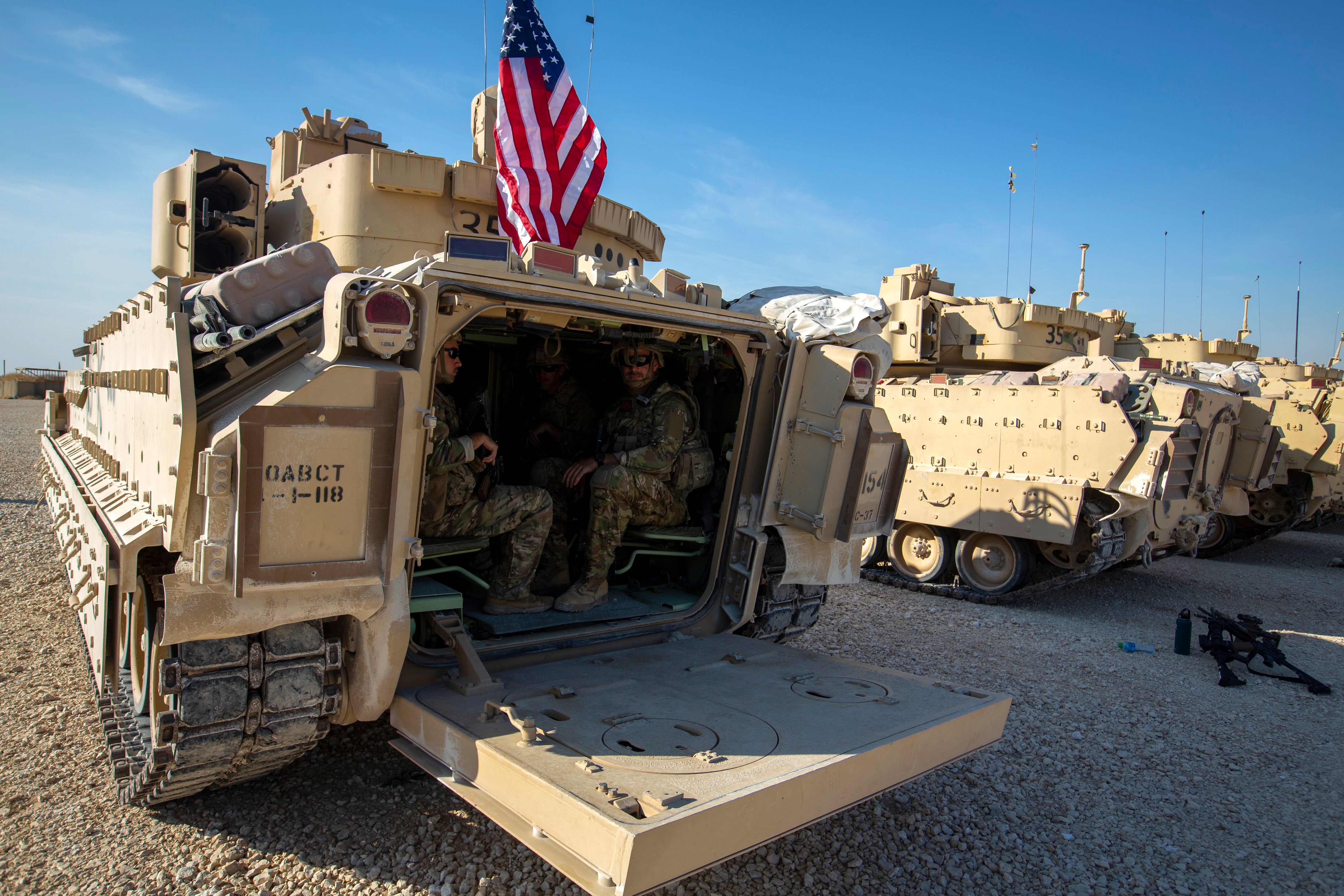New rules requiring the U.S. and its coalition partners to obtain prior Iraqi government approval to launch aircraft have negatively impacted the fight against Islamic State militants, according to a report.
Officials with Operation Inherent Resolve said in a recent Defense Department inspector general’s report that the restriction — imposed after suspected Israeli airstrikes on targets in Iraq — had “negative effects on air enterprise" for the counter ISIS mission by reducing "observation and monitoring time by ISR assets,” the report reads.
The Department of State echoed those sentiments in the IG report and stated the restrictions “hurt” the defeat ISIS mission by “reducing the ability of the coalition to use ISR assets to observe and monitor ISIS activity."
The Iraqi government clamped down on its airspace following a spate of four suspected Israeli airstrikes in July and August that targeted Iran-backed militia groups in the country.
Several analysts have indicated that the impact on ISIS surveillance operations in Iraq is problematic for the coalition because the next ISIS resurgence there is likely to occur where Iraqi forces are still reliant on coalition air assets to manage and clear ungoverned spaces.
And recent airstrikes launched by coalition aircraft may back up that claim that ISIS is looking to make a comeback in the country.
The 303 munitions released by coalition aircraft in October and September have all hit targets in Iraq, with the exception of the October raid that killed ISIS leader Abu Bakr al-Baghdadi in Syria, according to data provided by U.S. Air Forces Central Command.
RELATED

Officials with OIR said in an August news release that coalition aircraft would seek out approval before launching any drones, fixed or rotary wing assets in the country.
“As guests within Iraq’s sovereign borders, CJTF-OIR complies with all Iraqi laws and direction from the Government of Iraq,” the release said. “The U.S.-led coalition immediately complied with all directions received from our Iraqi partners as they implemented the Prime Minister’s order.”
The suspected Israeli airstrikes in Iraq set off a firestorm among Iraqi politicians and threatened to divide the U.S. between combative allies and potentially derail progress made fighting ISIS militants in the country.
The Associated Press reported, citing U.S. officials, that Israeli airstrikes targeted an Iranian weapons depot in Iraq in July. Two Iranian military commanders were also killed in a July Israeli strike in Iraq against a weapons depot, AP reported, citing American officials.
The suspected Israeli airstrikes angered Iraqi politicians and members of the Iran-backed popular mobilization forces, or PMF militias, who fingered the U.S. as partially culpable for the attacks.
In August, a bloc of Iraq’s parliament, the Fatah Coalition, called for the U.S. to withdraw its forces from Iraq, according to AP. The Fatah Coalition is largely supportive of the Iranian-backed PMFs.
The call to withdraw U.S. forces from the powerful Iraqi parliamentary bloc followed a suspected Israeli airstrike in the Iraqi city of al-Qaim that killed a PMF commander.
Iraq has attempted to rollback the Iranian aligned PMFs and fold them under the Iraqi government’s supervision. In July, Iraqi Prime Minster Adel Abd al Mahdi issued an order to fold and integrate all PMFs into the Iraqi security forces.
According to the Defense Intelligence Agency, some PMF brigades shut down and turned in their weapons, but others have defied the order, the IG report detailed.
RELATED

The DIA also said in the IG report that “Iranian-affiliated groups within the PMF are unlikely to change their loyalties because of the new order.”
Despite the liberation of major cities from ISIS’ grasp, Iraqi security forces are still struggling to combat ISIS in remote desert and mountainous areas. According to the IG report, Iraqi forces are not large enough to control desert areas and have been unable to retain control of areas cleared of ISIS in Salah ad Din province.
OIR said in the IG report that Iraqi security forces are “largely unwilling or incapable of holding terrain in the mountains and central and southern wadis of Kirkuk province, and that most commands under the ISF would not launch clearance operations in mountainous or desert terrain without coalition ISR and air support.
“For instance, the ISF generally continues to lack “operational reach” into less populated areas and its ability to “find and fix” a target is “a major shortfall” in capabilities,” OIR said in the IG report.
“Despite ongoing training, CJTF-OIR said that the ISF has not changed its level of reliance on Coalition forces for the last 9 months and that Iraqi commanders continue to request Coalition assets instead of utilizing their own systems,” the report reads.
Shawn Snow is the senior reporter for Marine Corps Times and a Marine Corps veteran.





